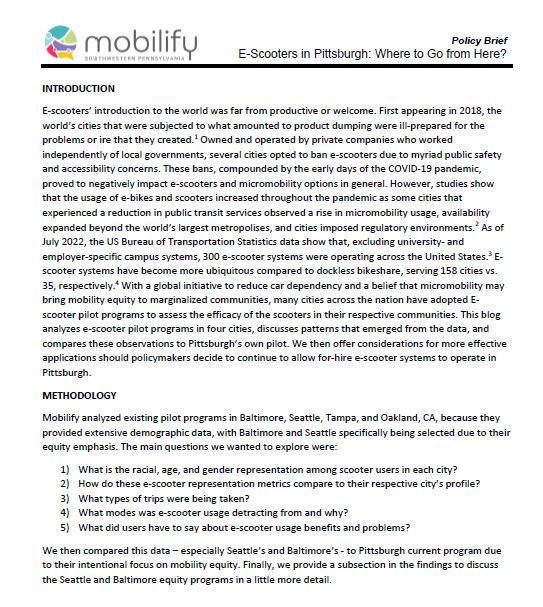E‐scooters’ introduction to the world was far from productive or welcome. First appearing in 2018, the world’s cities that were subjected to what amounted to product dumping were ill‐prepared for the
problems or ire that they created. Owned and operated by private companies who worked independently of local governments, several cities opted to ban e‐scooters due to myriad public safety
and accessibility concerns. These bans, compounded by the early days of the COVID‐19 pandemic, proved to negatively impact e‐scooters and micromobility options in general. However, studies show
that the usage of e‐bikes and scooters increased throughout the pandemic as some cities that experienced a reduction in public transit services observed a rise in micromobility usage, availability
expanded beyond the world’s largest metropolises, and cities imposed regulatory environments.
As of July 2022, the US Bureau of Transportation Statistics data show that, excluding university‐ and employer‐specific campus systems, 300 e‐scooter systems were operating across the United States. Escooter systems have become more ubiquitous compared to dockless bikeshare, serving 158 cities vs. 35, respectively. With a global initiative to reduce car dependency and a belief that micromobility may bring mobility equity to marginalized communities, many cities across the nation have adopted Escooter pilot programs to assess the efficacy of the scooters in their respective communities.
This brief analyzes e‐scooter pilot programs in four cities, discusses patterns that emerged from the data, and compares these observations to Pittsburgh’s own pilot. We then offer considerations for more effective applications should policymakers decide to continue to allow for‐hire e‐scooter systems to operate in Pittsburgh.

